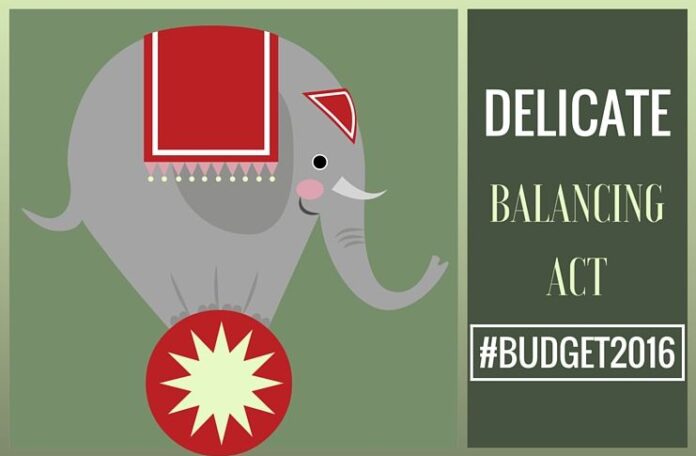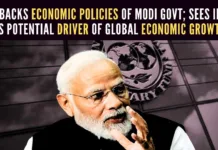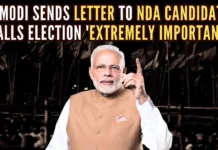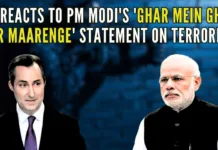
Government has managed a delicate exercise well in Budget2016
Prof R. Vaidyanathan, Professor of Finance, IIM-Bangalore
[dropcap color=”#008040″ boxed=”yes” boxed_radius=”8px” class=”” id=””]A[/dropcap] Budget is in a sense compromises with different stakeholders – be it a housewife making budget for a home or a Chief Financial Officer for a company or the Finance Minister of a Government. The core issue is always that expenditure runs higher than revenues. Government can rely on Nashik press to print more notes and Corporates turn to Banks. But housewives have no such recourse. So after a mild expression of indignance and surprise, the resign themselves back to the harsh realities of life and Budget2016 fades into insignificance.
The Government has a significant number of stake holders such as corporates — Domestic & Foreign, farmers, small entrepreneurs, salaried employees, retirees etc. Satisfying all of them is a herculean task. In our system unfortunately the movement of Sensex is equated to Economic progress even though the share in GDP of all listed companies will not be more than 10 percent. Since in USA the role of corporate is very large, it is therefore assumed (incorrectly) that similar is the case India by the US educated Economists and Experts.
[dropcap color=”#008040″ boxed=”yes” boxed_radius=”8px” class=”” id=””]I[/dropcap]nterestingly after a long time the focus of this budget is on Agriculture and Rural sector and Social Sector and Infrastructure. One of the important areas is irrigation. It is really sad that even after nearly 70 years of independence only 40% of our cultivated land is irrigated and rest depend on vagaries of rains. This budget suggests that more than 28 lakhs hectares will be brought under irrigation in the next few years. A dedicated long term Irrigation and will be created under NABARD with an initial corpus of ₹20,000 crores ($2.9 billion). Equally important is how prudently the funds are going to be used since past experience in Irrigation is not encouraging particularly even in progressive states like Maharashtra. But this time we hope things will be different since the first Constable of Treasury [Pradhan Sevak!] is the Prime Minister (PM). Given the price increase in Pulses and its impact on recently concluded Bihar polls—the Government has allotted Rs 500 crores for Pulse outputs.
Roadways are another area of Focus. Govt has allocated ₹19,000 crores ($2.765 billion) under Roadways schemes. Government has committed to 100% village electrification by May 1, 2018 — one full year before next election
The philosophy underlying the budget is about water, power and roads. Government rightly thinks that if these three needs are fulfilled then society will take care of other things.
[dropcap color=”#008040″ boxed=”yes” boxed_radius=”8px” class=”” id=””]O[/dropcap]f course there is an initiative for financing higher education wherein a bank similar to National Housing Finance may come into existence. But the cost of LKG and UKG is equally skyrocketing and perhaps this bank can take care of the needs of all education and skill formation like ITIs.
On the tax front there has not been any major change other than additional benefit of ₹3000 ($44) to those whose taxable income is below ₹5 Lakhs ($7,000) and an additional benefit of ₹50,000 ($728) for loans up to ₹35 lakhs ($51,000) & home buyers up to ₹50 lakhs ($73,000) worth homes.
Another area is tax exemption of commutation of up to 40% in NPS. But for new entrants PPF becomes EET [ Exempt/ Exempt/ Tax] unlike current EEE. This needs a re-think since PPF acts as first pillar of old age security scheme in a country like India where more than 80% do not have any mandated pension benefits since a large part of the work force is self employed.
[dropcap color=”#008040″ boxed=”yes” boxed_radius=”8px” class=”” id=””]T[/dropcap]wo areas which required attention is pertaining to having a separate regulatory framework for MUDRA initiative and steps to curb black money generation and holding of it. In his Budget speech on Monday, Arun Jaitley reported that an amount of ₹1 lakh crore ($14.5 billion) was sanctioned to 2.5 crore borrowers by February 2016 under the PM Mudra scheme and has proposed an increased allocation of ₹1.80 lakh crore ($26.2 billion) for the same. But for this to succeed there is a need to create a Mudra bank similar to NHB for integrating dispersed credit markets. Similarly by demonetizing ₹500 and ₹1000 notes and by making holding of cash beyond say ₹20 lakhs ($29,000) an offence – one could have addressed domestic black money.
Most important is that no scheme is named after politicians in power unless the earlier regimes—wherein more than 1000 schemes/ universities/ roads/ airports/ hospitals were named after members of Nehru family only. From that point it is a welcome departure.
One can say safely that it is a budget by Modi and he has definitely passed this exam with flying colors—since in his address to children on 28th Feb he mentioned Budget2016 as his exam.
[dropcap color=”#008040″ boxed=”yes” boxed_radius=”8px” class=”” id=””]T[/dropcap]his Budget2016 made D Raja of Communist Party of India (CPI) to comment that it has given no benefits to corporate sector. This reaction is interesting and intriguing. His late leader A. B. Bardhan caustically commented “Let Market go to dogs” – in 2004 when the first UPA government was to be formed — the government which was presumably run from Alimuddin Street of Kolkata [CPI-M] and Gopalapuram of Chennai [DMK].
Either CPI has moved far away from its revolutionary roots or BJP has moved away from its Big Business/ Financial markets obsession. Maybe both!
Views Personal
Note:
1. The conversion rate used in this article is 1 USD = 68.70 Rupees.
2. Text in Blue points to additional data on the topic.
- नकली खबर लक्षण है, बीमारी नहीं! - April 16, 2018
- Fake News/ Accreditation and Sedition - April 4, 2018
- Two Poisonous Seeds - March 15, 2018











No budget can really satisfy everyone. People comment from their view position and it will remain so for a long time to come. This budget is not at all dramatic and it need not be. By addressing the long standing needs of infrastructure and irrigation – two main issues which is craving for attention for a long – a major task has been initiated. Hope it continues to its logical end and of course the demon of corruption does not show up its head. Continue it for some time so that the irrigation becomes less evil and the farmers benefit by it
Unfortunately Dr Vaidya has to tone down, hope he is not going after a job in this government but this budget again is another wasteful exercise of allocating resources in areas where swindling is norm of the day.Continuing MNREGA and other wasteful schemes are again an approach of following UPA footsteps.jaitley is a lawyer ,chidu was a lawyer.One took India in wasteful path other will complete the job of destroying this country.Budgets have just become a taxing exercise.Middle class will wonder why they are squeezed with multitude of taxes,they are like captive labourers in gulf countries whose passports get impounded on landing.Taxing EPF withdrawls is the last straw on middle income camels of this country.They voted this stupid party to power, they will pull the plug in 2019.It will be a frightening day if UPA swindlers come back to power